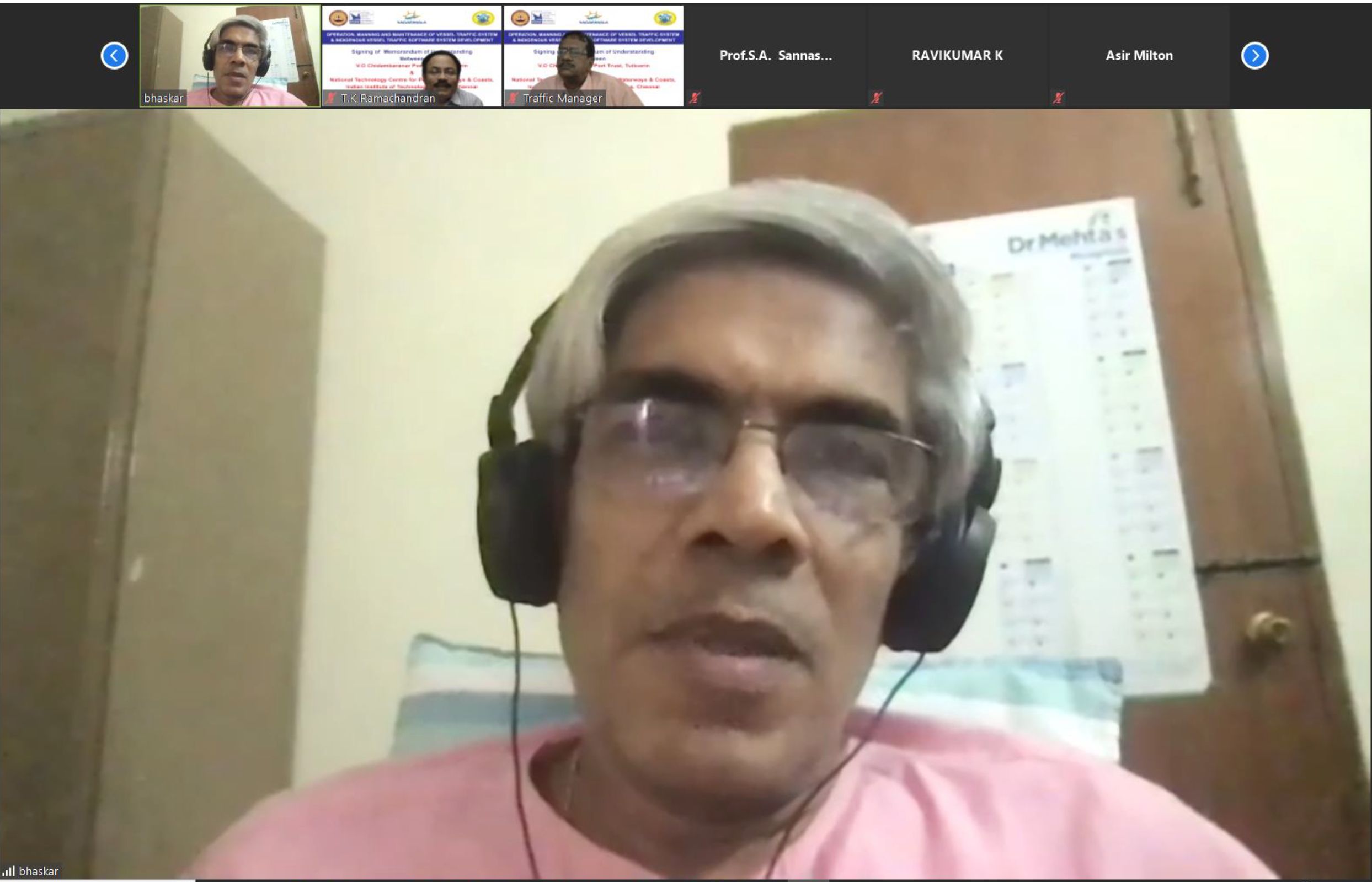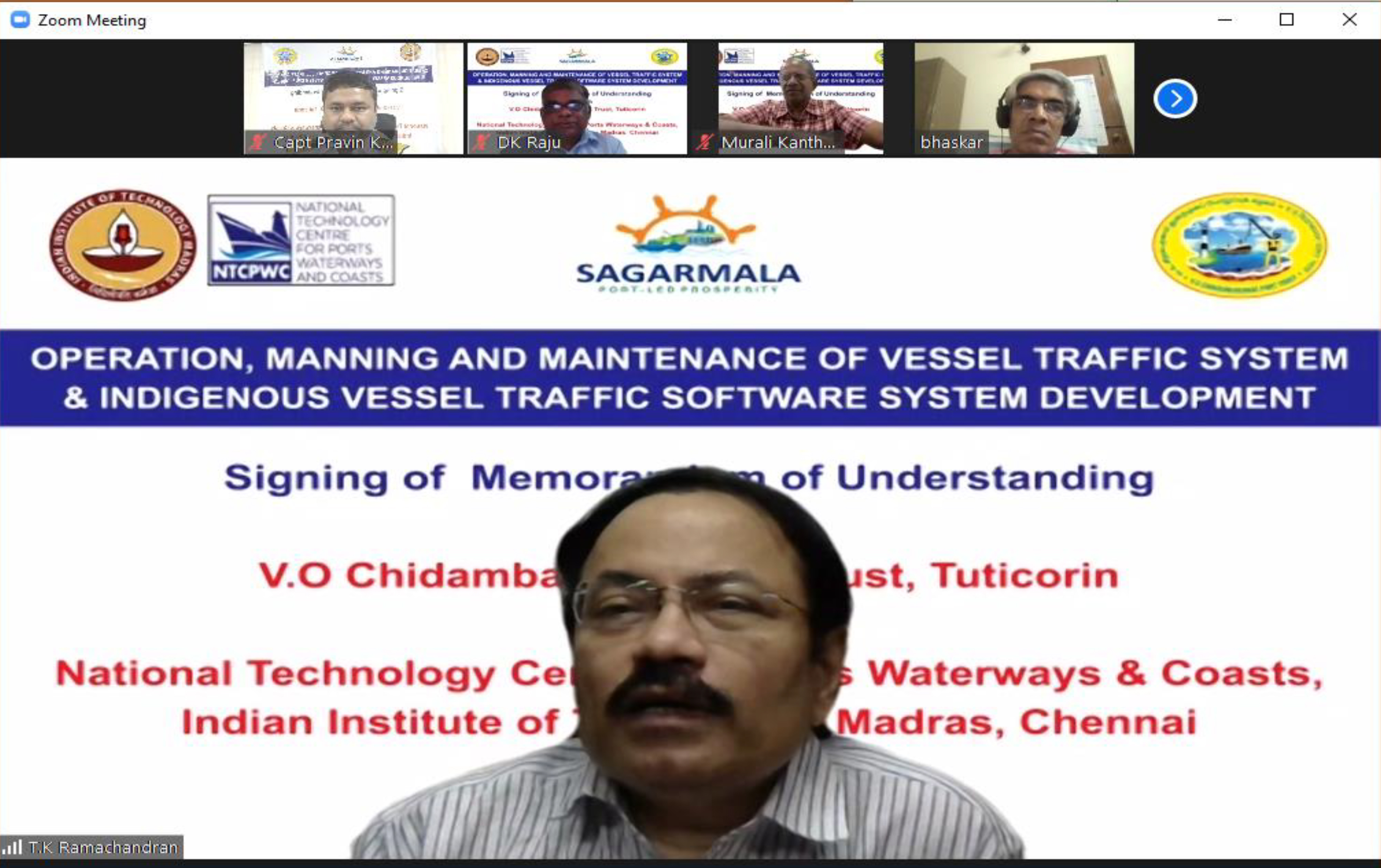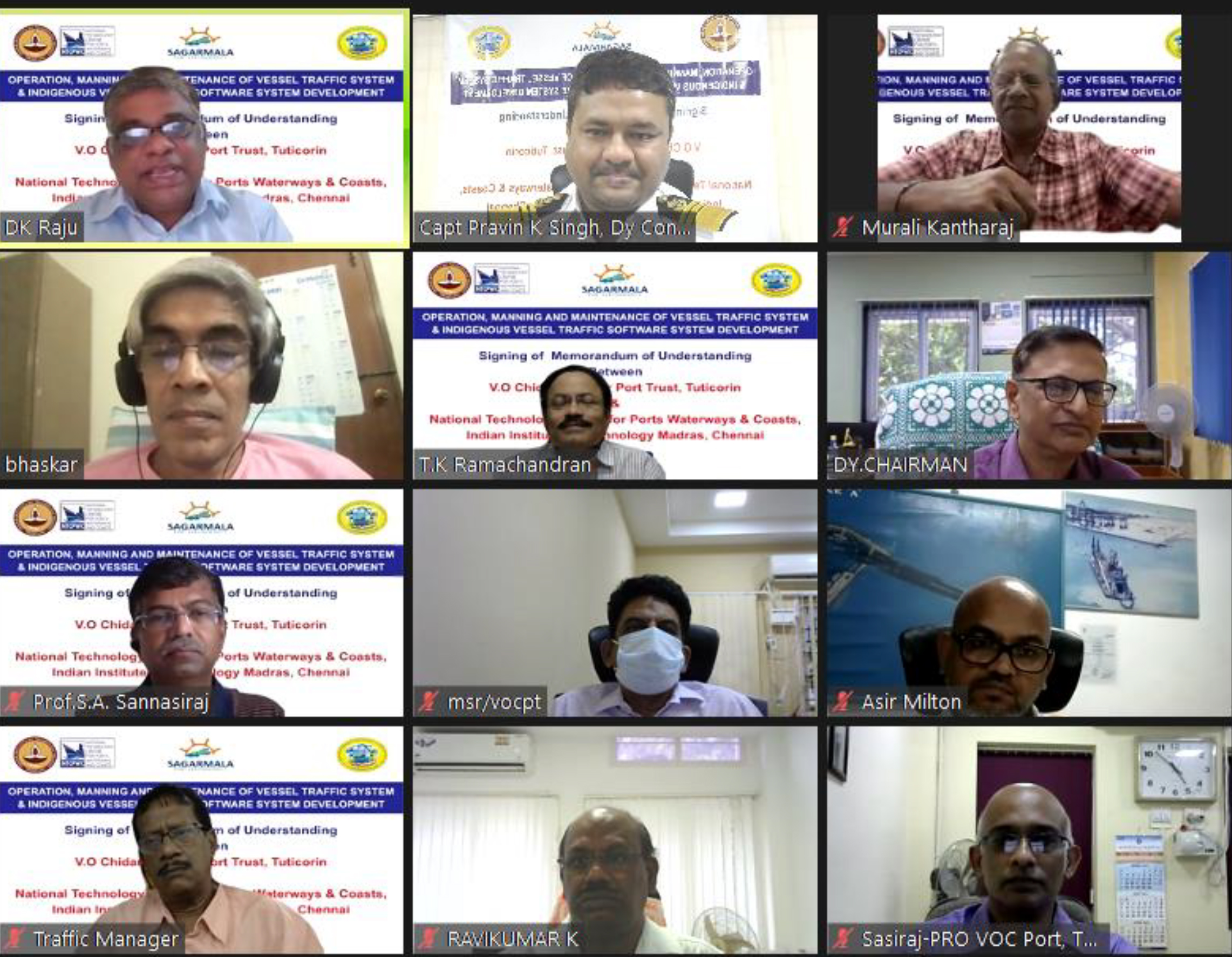Special Service and Features
VOC Port inks MoU with National Technology Centre for Ports Waterways & Coasts (NTCPWC), IIT Madras, for Development of Indigenous Vessel Traffic Software
Posted On:
26 MAY 2021 8:43PM by PIB Chennai
Today on 26.05.2021, V.O Chidambaranar Port Trust, Tuticorin, signed a Memorandum of Understanding (MoU) with National Technology Centre for Ports Waterways & Coasts (NTCPWC), IIT Madras, the technology arm of the Ministry of Ports, Shipping and Waterways, for Operation, Manning and Maintenance of Vessel Traffic System & Development of Indigenous Vessel Traffic Software at V.O Chidambaranar Port Trust, Tuticorin.
The MoU was signed on behalf of V.O. Chidambaranar Port Trust by, Capt Pravin K. Singh, Deputy Conservator, V.O. Chidambaranar Port Trust, and on behalf of National Technology Centre for Ports Waterways & Coasts, by Prof. K Murali, Professor In-charge, NTCPWC, in the presence of Shri T.K. Ramachandran, IAS, Chairman, Shri Bimal Kumar Jha, Deputy Chairman, V.O. Chidambaranar Port Trust, and Professor Bhaskar Ramamurthi, Director, IIT, Madras, other senior officials of V.O. Chidambaranar Port and NTCPWC, through Video conferencing. The duration of the MoU for maintenance & updating of the entire system shall be for a period of five years, extendable by another five years.
On signing of the MoU, NTCPWC would maintain the existing Vessel Traffic Service, develop indigenous Vessel Traffic System software for VOC Port, that would facilitate identification, tracking, analysis of shipping traffic, real-time information for Pilots, monitoring of meteorological warnings, and integration of existing Automatic Identification System (AIS). In addition, NTCPWC will also carry out assessment of the existing VTS functionalities, hardware, software, identify suitable upgrade and provide technical proposal to VOC Port for the VTS system upgrade and maintenance.
The indigenous VTS software development would be carried out at a cost of Rs. 27,81,600/- and Operation, Manning and Maintenance of existing VTS shall be carried out at a recurring monthly charge of Rs. 2,56,200/-.
The present VTS is operational for more than 7 years and with the increase in Maritime Traffic, and advent of technological developments that have taken place globally in a rapidly changing Maritime Domain, theneed for a more effective system offering higher levels of safety and throughput was felt, and accordingly, the Port has proposed to upgrade the existing VTS system and develop an indigenous Vessel Traffic Software System.
The MoU signed with National Technology Centre for Ports Waterways & Coasts (NTCPWC), IIT Madras, for development of indigenous Vessel Traffic Software System will help to realize the vision of Hon’ble Prime Minister of India, Shri Narendra Modi, for building a ‘Digital India’ and using Digital Technologies for building ‘AatmaNirbhar Bharat’.
Speaking on the occasion, Shri T.K. Ramachandran, IAS, Chairman, V.O. Chidambaranar Port Trust, Tuticorin, stated that the “VOC Port is the first Indian Major Port of India to sign MoU with NTCPWC for development of Indigenous software for VTS System. The development of indigenous system by NTCPWC, as per VOC Port’s requirement, instead of relying on proprietary and costly foreign made software solutions, will be a game changer in Indian Maritime Industry”.
Professor Bhaskar Ramamurthi, Director, IIT, Madras, briefed about the collaboration between IIT, Madras and MoPSW; and Shri K Murali, Professor In-charge, NTCPWC, in his address stated that NTCPWC has all the infrastructure and expertise in place, required for development of the VTS system. NTCPWC has already taken up a Pilot project in Syama Prasad Mookherjee Port Trust (Kolkata Port) for development of Indigenous VTS software. It has also developed solar-powered hi-tech unmanned survey craft for Ports that can undertake autonomous surveys and transmit real-time data over long distances.
VTS is mandatory under IMO Convention ‘SOLAS’ (Safety of Life at Sea). The VTS traffic image is compiled and collected by means of advanced sensors such as radar, AIS, direction finding devices, CCTV and VHF or other co-operative systems and services. A modern VTS integrates all the information into a single operator working environment for ease of use and in order to allow for effective Maritime traffic organization and communication, according to the press release by V. O. Chidambaranar Port Trust.



-----
(Release ID: 1721977)
Visitor Counter : 410